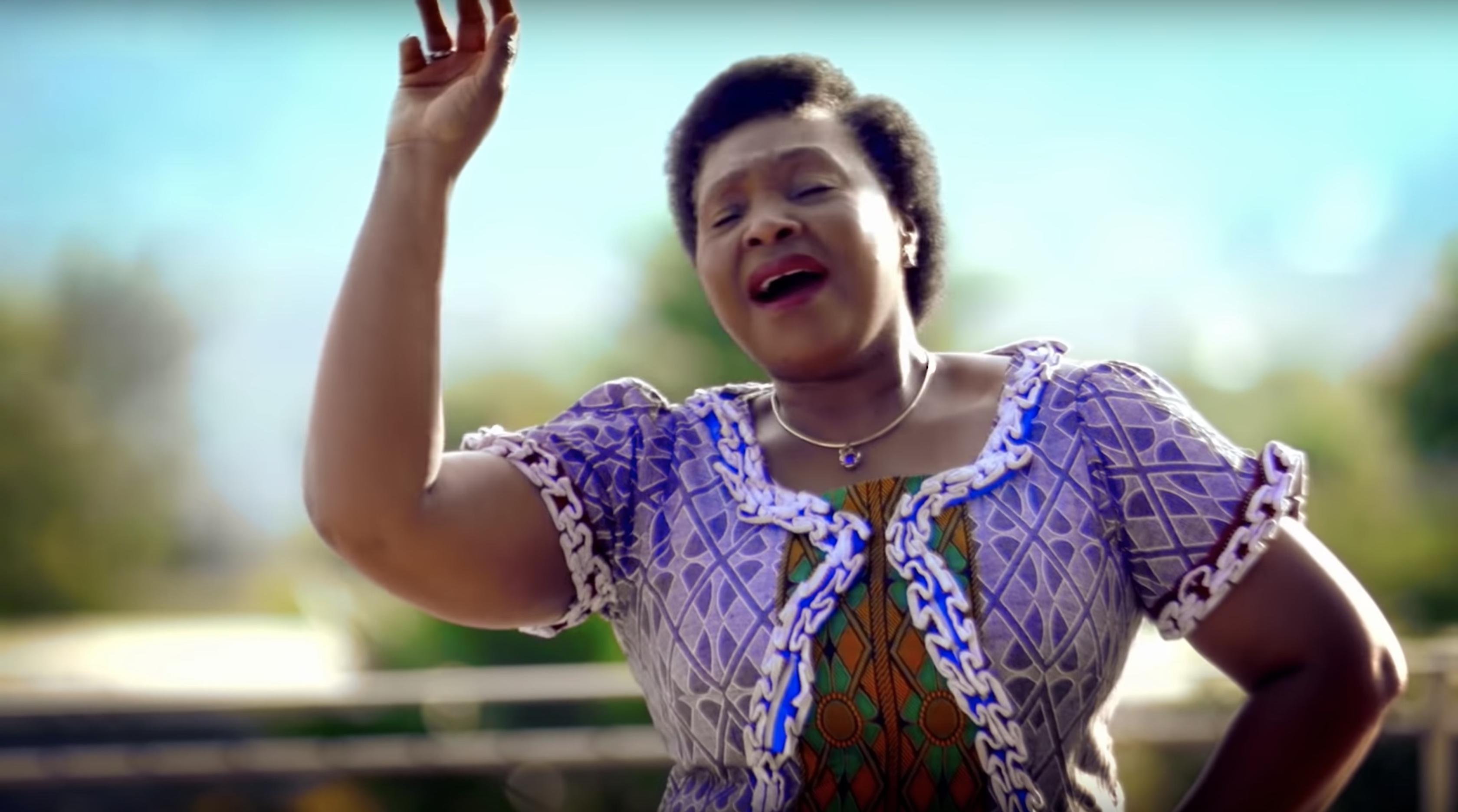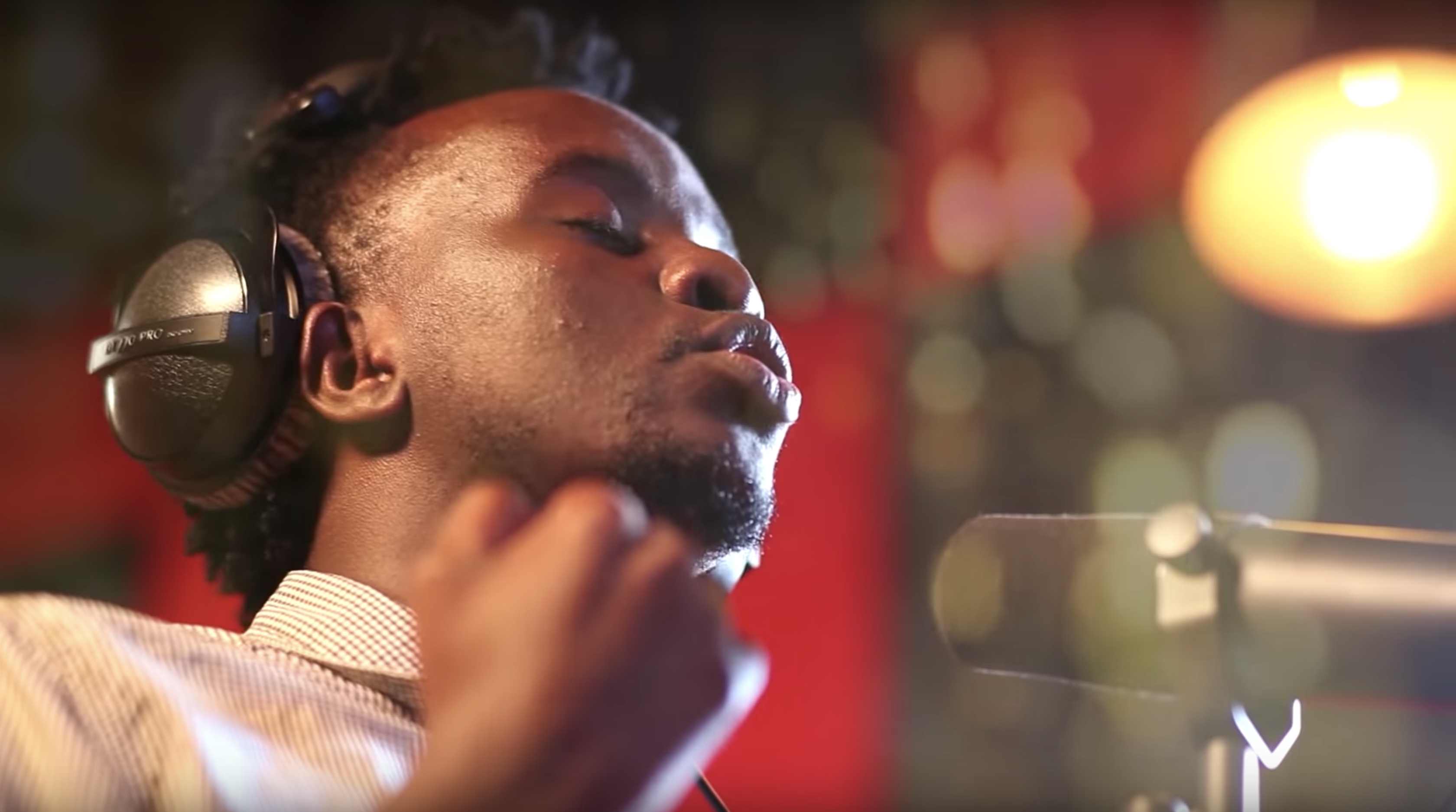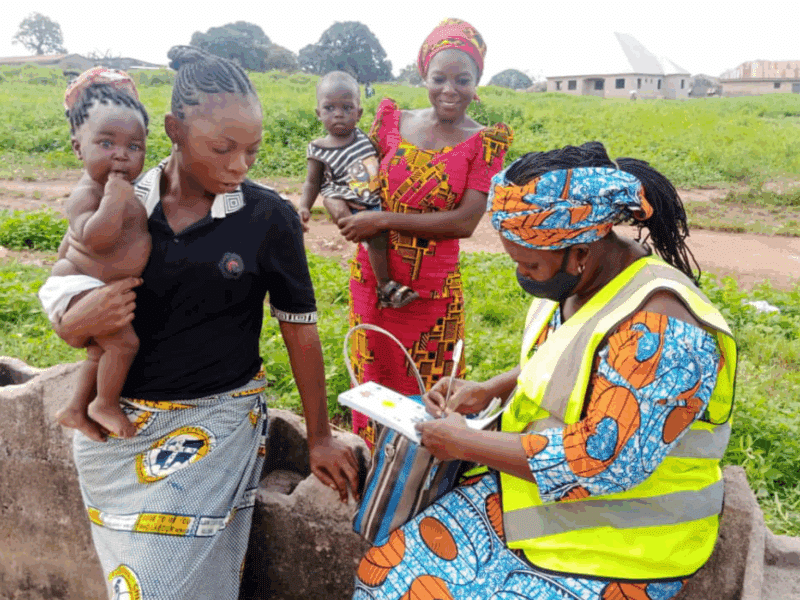The artists came from around the globe to perform a song with a message: “We are family and we are planning to go around the world telling everyone that we demand a choice,” goes the catchy chorus.
Tanzania’s Otuck William wrote the words to “We are Family” for the 2018 International Conference on Family Planning (ICFP) in Kigali, Rwanda. Patrick Coleman, a longtime employee at the Johns Hopkins Center for Communication Programs, worked with the range of performers, including Otuck and Yvonne Chaka Chaka, an internationally known South African singer, to create a captivating four-minute and 16-second music video meant to bring people together to speak out about reproductive health, rights and justice.
At the Women Deliver conference this month in Vancouver, the video finally had its premiere. The audience loved it so much that they demanded an encore so they could keep dancing.
To hear Otuck tell it, music is the ideal medium through which to promote family planning messages.
“Music has the ability to bring people together, inspiring them but also sparking dialogues,” says Otuck, a sexual and reproductive health advocate who spent the past five years with the International Youth Alliance for Family Planning before turning 30 last month. “Through sounds, rhythm and storytelling, music has a … way of communicating socially difficult issues in easy and acceptable ways.”
Otuck wrote “We are Family” at the behest of the Johns Hopkins Bloomberg School of Public Health’s Bill & Melinda Gates Institute for Population and Reproductive Health to close out ICFP in November. He and his co-producer, American Trevor Arnett, reached out to a number of artists to feature them on the song. Among the others who appear are Avril Nyambura from Kenya, Knowless Butera of Rwanda, Navz47 of Sri Lanka and Xenia Franca of Brazil.

South African singer Yvonne Chaka Chaka performs in the music video for “We are Family.”
The video combines material from the ICFP stage as well as shots of the performers in the studio and footage from a rooftop performance in Rwanda. “This gave us an opportunity to make something fun, entertaining and reflective of the sincerity of the song,” CCP’s Coleman says.
While the use of modern contraception has increased around the world, fertility rates are still high in many countries, particularly in sub-Saharan Africa. The United Nations estimates that the world’s population could reach 9.8 billion people by 2050 – an increase of more than two billion people in just 30 years. Africa is set to grow faster than anywhere else.
Music, Otuck says, is a great tool to create the kind of social and behavior change necessary to increase access to and use of modern contraception.
“Musicians are some of the most influential public figures in our societies,” says Otuck, who is now a managing director at the Young & Alive Initiative in Tanzania. “The best way to reach out to the majority of the public is to engage people who they are looking up to, such as musicians and other celebrities.”
CCP has a long history of using entertainment to educate people and inspire them to make healthy behavior choices. Jose “Oying” G. Rimon II, director of the Gates Institute, says the latest song follows in the footsteps of Tatiana and Johnny who in the 1980s in Latin America had a hit song about the controversial topic of teen sexuality while delivering a message of responsibility, as well as future Tony Award-winner Lea Salonga who through song asked teens to take a thoughtful approach to decisions regarding sex.
“Otuck and the other incredibly talented artists who contributed to the success of ‘We Are Family’ represent a long line of artists, activists and performers whose passion for family planning and social responsibility only enhanced their undeniable power as global superstars,” he says.





